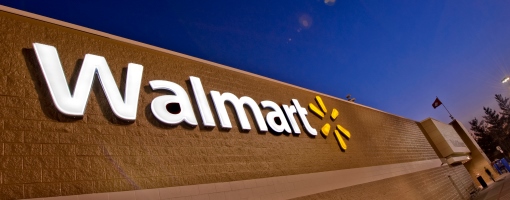Traditional supply chain models need to be more collaborative to facilitate the right technology solutions for managing disruption, Tesco’s head of products has said.
Speaking on a panel at London Tech Week, Kuru Subramaniam talked about the evolution of supply chains and the importance of technology in reshaping them amid increasing uncertainty and rising operational challenges, including geopolitical issues, weather and cyber-attacks.
Subramaniam emphasised the importance of building new technology solutions in collaboration with ecosystem partners, stressing that it is not effective to develop solutions in silos.
"It's easy to build something within your own four walls and say: OK, this will work,” he said. “It can work once, but few supply chain instructions are end to end.
“Because of that it becomes crucial to collaborate with partners, and to collaborate and build these solutions together.”
He also stressed that retailers are “only as resilient as their most vulnerable partners”, adding that transparency and a joint effort across the supply chain is essential, not only for technology solutions, but for overall resilience.
The view was reiterated by Francis Castro, vice-president of technology for customers at Unilever, who argued the importance of moving from a traditional competitive supply chain to one that provides an extended view of distribution from both the consumer and supplier perspectives.
“Traditional models creates silos that hinder achievement,” he said.
Castro explained that a more collaborative strategy allows for better visibility and information sharing.
“By sharing trust, capabilities and information across the supply chain, businesses can elevate resilience and create more effective partnerships,” he added.
During the panel, Tesco’s head of product also highlighted the important role of technology to sense disruption and the rising role of digital twins to simulate uncertainty.
"Once you sense something, you can simulate uncertainty and that’s where digital twins will play an important part,” he added.
While welcoming tech developments, Subramaniam also explained that human involvement in new technological developments is key.
"I think human in the loop is quite important, we aren't at the stage where AI and ML has matured to a point where we can be completely hands off,” he continued.
Commenting on the operational challenges currently faced by grocery retailers, he said that disruption directly impact customers, who then have to spend time finding alternatives when products are not available.
“In the food industry, this challenge is particularly complex due to extremely short product shelf lives, razor-thin margins, and the inability to stockpile inventory,” he added.
Latest News
-
New Look completes cloud migration in time for peak season
-
The Fragrance Shop lauches AI-powered retail operations platform
-
Co-op opens first London ‘on the go’ store
-
Jo Malone London partners with Google Cloud to launch AI-powered scent adviser
-
Albertsons launches agentic AI-powered shopping assistant
-
Merger to create UK’s largest independent co-operative society
Beyond Channels: Redefining retail with Unified Commerce
This Retail Systems fireside chat with Nikki Baird, Vice President, Strategy & Product at Aptos will explore how unified commerce strategies enable retailers to tear down these barriers and unlock new levels of operational agility and customer satisfaction.
The future of self-checkout: Building a system that works for consumers and retailers
In this webinar, industry leaders discussed what the future of self-checkout looks like and how retailers can make the technology work for everyone.
© 2024 Perspective Publishing Privacy & Cookies













Recent Stories